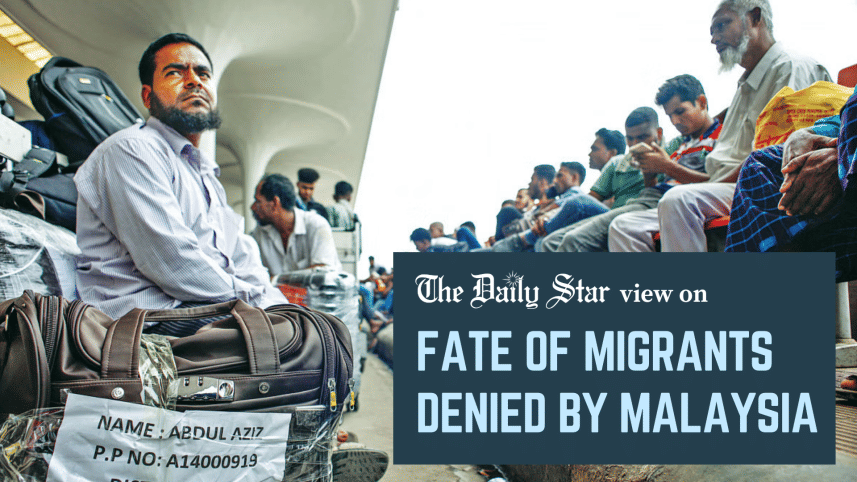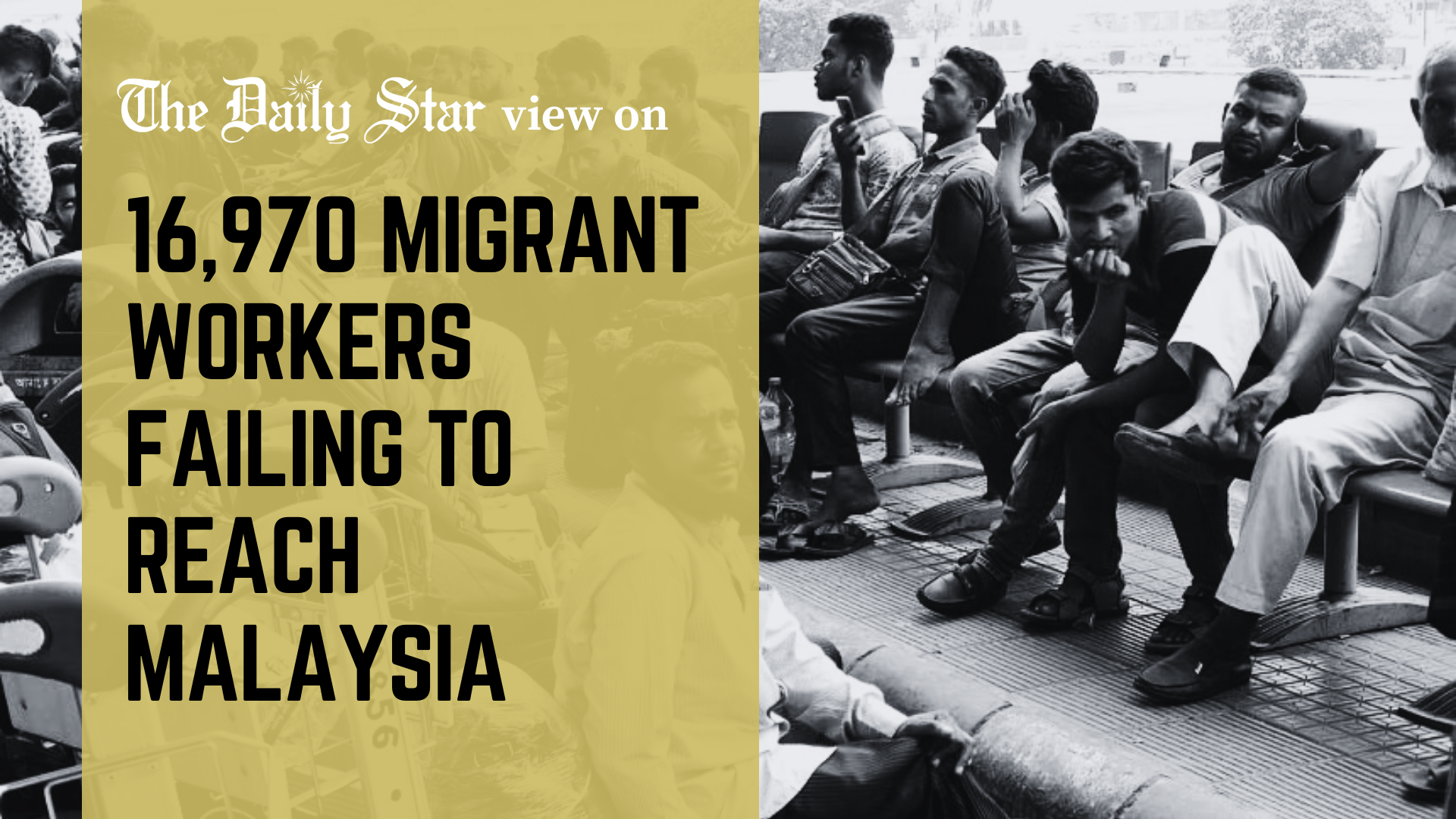Don't let the Malaysia migration crisis be lost in blame game

Following the debacle that led to 16,970 aspiring migrant workers failing to reach Malaysia before the deadline of May 31 set for migrants' entry, a blame game seems to be afoot. One the one hand, the Bangladesh Association of International Recruiting Agencies (Baira) denied responsibility for the disaster, blaming the Malaysian government and Bangladesh's Ministry of Expatriates' Welfare and Overseas Employment for the mismanagement. On the other hand, the relevant state minister hinted that the Malaysian government was at fault for the issuance of e-visas beyond the deadline, but said it was pointless to blame anyone right now, while denying the existence of any syndicate among recruiting agencies.
We, however, cannot help but disagree. For it is absolutely essential to identify who is at fault for such a catastrophe, and hold them responsible. We have seen such problems arise repeatedly in the past, which suggests that this is not a one-off issue but a systemic one—in which the subject of syndication comes up every time. In fact, the reason given by the Malaysian authorities for repeatedly stopping or restricting access for our migrant workers has been the syndicate problem, along with the mismanagement and corruption that come with it. Even UN experts, in a report, expressed concerns for our migrants and mentioned the hefty sums they have to pay because of criminal networks operating in Malaysia and Bangladesh in which "certain high-level officials" of "both governments are involved." So why is the minister denying their existence?
Baira, meanwhile, refuted the expat ministry's figure and said no more than 5,000-6,000 workers failed to travel abroad. However, data from the Bureau of Manpower Employment and Training (BMET) suggests otherwise. Why is that? Clearly, someone—or perhaps no one in this case—is not doing their job properly. Otherwise, why should there be any confusion at this point about the number of migrants who couldn't go abroad?
It is time for the relevant authorities to be finally held to account. The whole process of how we send migrants abroad, not just in Malaysia but other destination countries as well, needs to be revisited and reformed given how badly it has performed time and again. And most importantly, steps must be taken to reimburse and rehabilitate workers who could not travel abroad, despite paying for it, because of these systemic issues and failures.



 For all latest news, follow The Daily Star's Google News channel.
For all latest news, follow The Daily Star's Google News channel. 

Comments